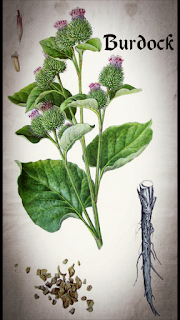Herbal Medicine: Clove
Clove (Syzygium aromaticum); in Latin is "Clavus," meaning Nail.
Clove is native to the Maluku Islands in Indonesia. First introduced in Europe in the 4th Century AD as a "Luxury" spice, the Cloves origin was kept a secret. Fought over for hundreds of years, Clove was once as valuable as oil. The current main producers of Clove are Indonesia and Madagascar.
The first recorded history of Clove as medicine is in 240 BC, used in Chinese medicine as a treatment for diarrhea, hernias, and more.
Ayurvedic medicine incorporates Clove for bad breath, tooth decay, and halitosis.
Clove was traditionally implemented to prevent nausea and indigestion, to relieve hiccups, and enhance blood circulation & liver function.
The Clove tree can reach up to 12-15 meters in height, and it is the immature flower buds that we harvest and use for medicinal and culinary purposes.
The essential oil of clove is derived through distillation. The leaves, stems and flower buds are typically used for this; however, the essential oil derived from the stems and leaves has been shown to be high in toxicity. Therefore, for medicinal use it is recommended to use only essential oil derived from the Clove flower buds. This oil is light yellow in color.
Clove essential oil must be diluted in a Carrier Oil down to 1% for topical use, or skin irritation may occur. When applied topically, Clove oil has been shown to be beneficial to rheumatism and arthritis, in treating Streptococcus, Staphylococcus, and Pneumococcus; and for treating tooth pain by absorbing the oil into a cotton ball or swab and placing directly on the affected tooth.
Clove oil diluted in alcohol makes a great disinfectant for wounds, and remedy for ringworm and Athletes Foot.
Clove is beneficial to digestion, reduces gas & associated cramps, and helps to increase nutrient absorption.
Clove is an antioxidant, aphrodisiac, antidiarrheal, antifungal, anticarcinogen, antibacterial, diuretic, odontalgic, analgesic, antimicrobial, antihistamine, antimutagenic, hepatoprotective, blood thinner, & immune-booster.
Clove contains carbohydrates, proteins, lipids, dietary fiber, calcium, iron, magnesium, phosphorous, potassium, sodium, zinc, thiamin, riboflavin, niacin, folate; and Vitamins A, B6, B12, C, D, E, and K.
Clove can be roasted, powdered, and taken with honey to relieve digestion upset.
To treat migraine headaches, make a paste with a few Cloves and a dash of rock salt, then mix in a glass of milk and drink; reduces the pain quickly and effectively.
A tea can be made from steeping clove in boiling hot water to help relieve seasonal allergies, and associated nasal congestion and sinus pressure. Clove tea also aids in nervous system support and helps calm tension, anxiety, and ease depression.
Clove has been shown to fight gum and oral disease, as well as periodontitis.
Clove also promotes bone density and mineral content; it is good for patients with Osteoporosis.
*DO NOT USE Clove as medicine if you are currently taking prescription blood thinners or have an existing hereditary condition inhibiting blood clotting; do not give to children under the age of 12; and stop use 2 weeks prior to any surgeries*
Clove medicine has been around for a very long time, and scientific research is only confirming traditional knowledge and use of Clove in medicine.
To a happier & healthier you!
~Tanya Capps~
Herbal Witchcraft Magazine
https://www.herbalwitchcraftmagazine.com




Comments
Post a Comment